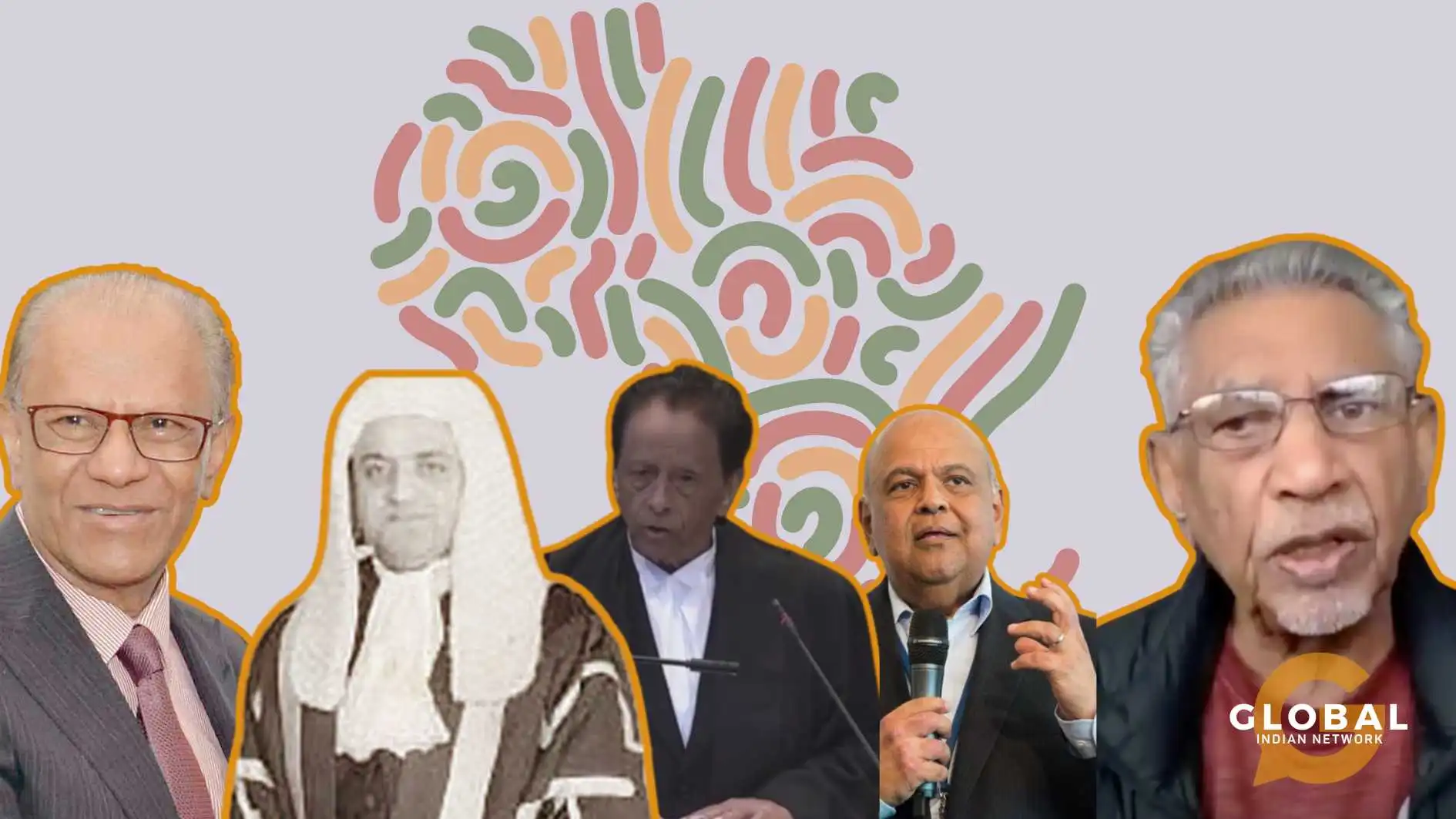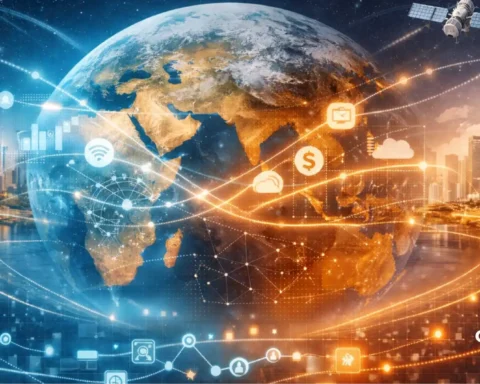Indian presence in Africa has a long history, beginning with traders, merchants, and indentured labourers brought by colonial powers. Today, Global Indians play a key role in shaping Africa’s political and diplomatic landscape. Indian leaders hold influential positions in governance, policymaking, and international relations, contributing to economic policies, trade, and diplomatic ties between Africa and India. Their involvement extends beyond national politics to regional and global organizations, strengthening Africa’s international connections.
As Africa rises as a global economic and political force, the global Indians foster strategic partnerships, investment, and cultural exchange. Their unique position enables them to navigate African and Indian socio-political spheres, enhancing bilateral cooperation. This article examines the contributions, challenges, and evolving role of Global Indians in Africa’s political and diplomatic landscape.
This article focuses on the global Indian community, which contributes to Africa’s political and diplomatic landscape, plays a crucial role in shaping its international relations, and contributes to its growth and that of Africa.
Explore more about Africa's vibrant cultures, must-visit destinations, business opportunities, and the inspiring stories of the global Indian community by visiting our Africa Destination Page. Don’t forget to check out our podcasts featuring prominent personalities shaping the continent!
Table of Contents
Political Participation and Representation
Global Indians have significantly contributed to Africa’s political landscape, starting with economic survival and community building. They now hold positions in national and local governments, asserting their rights and seeking political representation. The diverse political involvement of these individuals, including serving as parliament members, ministers, or advisors, and their involvement in local governance and community development, reflects their unique perspective and ability to bridge the gap between their Indian and African heritage, fostering stronger ties and mutual understanding.
Diplomatic Bridges
Global Indians, with their diverse cultural and business backgrounds, significantly contribute to strengthening diplomatic ties between India and African nations. They serve as unofficial ambassadors, promoting understanding and goodwill, facilitating business partnerships, encouraging investment, and promoting cultural exchange programs. Their presence helps dispel stereotypes and build community bridges, fostering trade, investment, and cultural exchange.
Indian Defense officials pose for a group photo with delegates from African countries during the India-Africa Army Chief’s Conclave in Pune in the western Indian state of Maharashtra. (Photo: Money Sharma / AFP)
India’s Inclusion of the African Union in the G20
The G20 has accepted India’s proposal to include the African Union (AU) as a permanent member, integrating 55 African nations into the forum. This move solidifies India’s position as a global player championing inclusivity and diversity. All participating nations unanimously supported this. The G20 membership of the AU provides a direct voice for African nations to address global challenges, including developmental, financial, economic, and environmental concerns. It also promotes infrastructure development, international market access, and economic stimulation. The G20 represents 85% of global GDP and 75% of global trade.
Notable Global Indian Figures in African politics
Indian-Africans have a significant influence in African politics, with Indian Prime Minister Jawaharlal Nehru calling Africa India’s “sister continent.” Indian Africans hold important political offices in African states, such as (late) Narendra Patel, who became the Speaker of Parliament in Uganda. They are an essential part of Africa’s middle class, playing a major role in education, health, industrialization, and trade. India has actively supported African liberation movements. In 1986, Prime Minister Rajiv Gandhi established an Africa Fund within the Non-Aligned Movement, contributed to front states and liberation movements in South Africa and Namibia, and trained over 300 ANC supporters.
Navinchandra Ramgoolam, a multiple-term Prime Minister of Mauritius, succeeded his father, Seewoosagur Ramgoolam, who was a key leader in Mauritius’ independence movement. Late Anerood Jugnauth, who held both Prime Minister and President positions in Mauritius, significantly influenced the country’s economic and political landscape. Late Pravin Gordhan, a prominent figure in South Africa’s post-apartheid governance, served as Minister of Finance and played a pivotal role in economic reforms. Mac Maharaj, a prominent anti-apartheid activist, later served in Nelson Mandela’s government.

Emerging Global Indian Leaders in African Institutions
Indian Africans significantly contribute to Africa’s middle class, contributing to education, health, industrialization, trade, politics, and military. India’s approach is unique, focusing on collaboration with African countries as equals, enabling African leadership and agency. India is committed to establishing African capacity-building institutions like Ghana’s India-Africa Institute of Information Technology.
India is utilizing its unique access to African grassroots communities through projects like the Solar Mamas Project, which trains women from impoverished communities in solar engineering. The African Union is pushing for the integration of initiatives like the African Continental Free Trade Area into the Africa-India partnership.
Challenges and Opportunities
Global Indians in Africa face challenges such as identity, integration, and discrimination, balancing their cultural heritage with their African identity. Despite these challenges, the opportunities are immense as Africa continues to grow and develop, with their skills, expertise, and connections playing a pivotal role in promoting sustainable development, fostering innovation, and strengthening global ties.
Explore more about Africa's vibrant cultures, must-visit destinations, business opportunities, and the inspiring stories of the global Indian community by visiting our Africa Destination Page. Don’t forget to check out our podcasts featuring prominent personalities shaping the continent!
Solutions to the Challenges faced by Global Indians in the Political and Diplomatic Landscape
India’s strategy must prioritise policies to boost GDP growth and address income disparities, such as investing in education, healthcare, and infrastructure. It also aims to enhance diplomatic capacity by expanding and professionalizing the diplomatic corps to address global challenges and opportunities, thereby achieving its vision of becoming a global superpower.
India must rely on astute diplomacy and build internal strengths to navigate challenges. This requires a diplomatic cohort with local knowledge and a larger on-the-ground presence in the host country. India can envision cross-cultural exchange programs for the Global South to intensify communication, advance skills, and enable mutual respect. This will build a global network anchored by the Ministry of External Affairs (MEA) agency, embassies, high commissions, and the Indian Council for Cultural Relations (ICCR).
Indian embassies need more diplomatic staff with in-country networks and an advanced understanding of local laws and public diplomacy to help expatriates. This can improve economic relations, cultural ties, and visa restrictions for citizens. Additionally, maintaining strategic autonomy and deepening partnerships with like-minded countries is crucial to safeguarding India’s interests and ensuring the country’s interests are protected.
A Promising Future
Global Indians in Africa have become influential figures in the continent’s political and diplomatic landscape despite their humble beginnings as traders and labourers. As Africa continues its growth and development journey, the Global Indian community will play a greater role in shaping its future, fostering stronger ties with India, and contributing to a more prosperous and interconnected world. Their unique position at the intersection of two vibrant cultures positions them as key players in Africa’s global rise.
ALSO READ: Untapped Potential: The Role of Global Indian Entrepreneurs in Africa’s Economic Rise
Conclusion
Global Indians significantly influence Africa’s political and diplomatic landscape, contributing to governance, economic policies, and international relations. They foster bilateral cooperation, investment, and cultural exchange, making them valuable intermediaries. India and Africa are fostering a partnership based on historical solidarity and shared interests, advocating for African representation in global governance and strategic investments, promoting economic resilience, innovation, and inclusive growth, and establishing themselves as vital global actors.
Global Indians and Africa’s collaboration is vital for governance, trade, and diplomacy. Strengthening this bond requires political engagement, economic investment, and cultural exchange. As Africa’s influence grows, the global Indians can drive growth, innovation, and regional stability. By embracing resilience, they can build a future based on trust, opportunity, and sustainable development.
We at the Global Indian Network stand for the upliftment of India and Africa. As a principle, we do not want to let our brothers and sisters down. Follow our mission to know more.

Explore more about Africa's vibrant cultures, must-visit destinations, business opportunities, and the inspiring stories of the global Indian community by visiting our Africa Destination Page. Don’t forget to check out our podcasts featuring prominent personalities shaping the continent!









